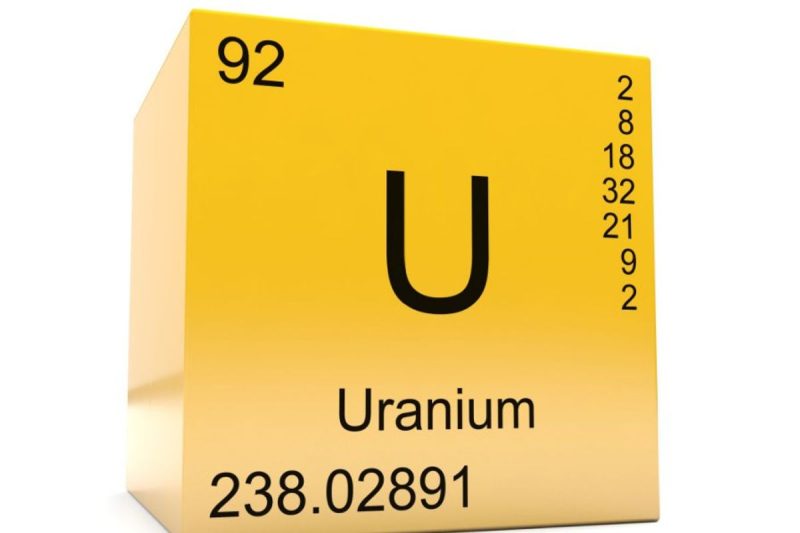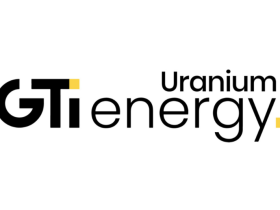The S&P/TSX Composite Index (INDEXTSI:OSPTX) saw a slight decline last week, closing at 19,837.78.
Market watchers are closely eyeing the release of Canada’s latest GDP data, which is due out this coming Friday (September 1). According to Reuters, the numbers are likely to show a ‘sharp slowdown in economic growth.’ The economy is expected to have grown at a 1.1 percent pace in Q2, less than the 3.1 percent growth rate seen in 2023’s first quarter.
Looking further ahead, the Bank of Canada will make its next interest rate decision on September 6.
Against that backdrop, some resource juniors listed on the TSX saw their share prices go up last week. Here’s a look at the five biggest gainers and the factors that moved their share prices during the period.
1. Laramide Resources (TSX:LAM)
Weekly gain: 21.28 percent; market cap: C$129.26 million; current share price: C$0.57
Uranium-focused Laramide Resources is engaged in exploration and development activities at five assets located in Australia and the Western US. The company has the Westmoreland project in Queensland, Australia, as well as the adjacent Murphy project in the country’s Northern Territory. Its US properties are Crownpoint-Churchrock, La Jara Mesa and La Sal.
Last Thursday (August 24), Laramide’s US subsidiary NuFuels was awarded a US$1,756,778 grant from the US Department of Energy. The funds will be used for a joint research project with Los Alamos National Laboratory; the parties will develop advanced groundwater restoration technology related to in-situ recovery.
The news sent the company’s share price up 21.28 percent to finish at C$0.57.
2. International Tower Hill Mines (TSX:ITH)
Weekly gain: 13.73 percent; market cap: C$113.61 million; current share price: C$0.58
International Tower Hill Mines wholly owns the Alaska-based Livengood gold project, which has a measured and indicated gold resource of 13.6 million ounces and proven and probable gold reserves of 9 million ounces.
The company hasn’t released news since August 7, when it filed its Q2 financial results. However, its share price nevertheless rose 13.73 percent last week to close the period at C$0.58.
3. China Gold International Resources (TSX:CGG)
Weekly gain: 13.62 percent; market cap: C$2.12 billion; current share price: C$5.34
Gold and base metals miner China Gold International Resources has two mines in China: the CSH gold mine in Inner Mongolia, and the Jiama copper-gold-polymetallic mine in Tibet.
The company’s latest news came on August 14, when it shared its financial and operational results for Q2. Despite the lack of fresh news, its share price jumped 13.62 percent last week to finish at C$5.34.
4. Wesdome Gold Mines (TSX:WDO)
Weekly gain: 13.28 percent; market cap: C$1.16 billion; current share price: C$7.76
Wesdome Gold Mines’ goal is to become Canada’s next intermediate gold producer. To that end, the company currently has two high-grade underground mines in the country: Eagle River in Ontario and Kiena in Quebec.
The firm hasn’t released any news since August 10, when it put out its second quarter financial results. Over the course of last week, Wesdome’s share price increased 13.28 percent to reach C$7.76.
5. Forsys Metals (TSX:FSY)
Weekly gain: 12 percent; market cap: C$81.97 million; current share price: C$0.42
Forsys Metals owns the Namibia-based Norasa uranium project, which is made up of the Valencia and Namibplaas properties. A 2015 definitive feasibility shows Norasa is capable of producing 5.2 million pounds of U3O8 per year.
There was no fresh news from Forsys last week, but company shares rose 12 percent to end at C$0.42.
FAQs for TSX stocks
How big is the TSX?
The TSX is Canada’s biggest stock exchange, and as of June 16, 2023, it had 1,789 listed stocks for a total market value of more than C$3.792 trillion. The TSX is often ranked as one of the 10 largest stock exchanges in the world.
Why do companies list on the TSX?
Listing on one of the world’s largest stock exchanges provides companies with greater market exposure, the ability to raise capital and an opportunity to build a strong financial reputation. In its technical guide to listing, the TSX states the exchange “offers companies a dynamic market to raise capital, enhanced liquidity, specialized indices, visibility and analyst coverage.’
What sectors are included in the S&P/TSX Composite Index?
The S&P/TSX Composite Index tracks more than 230 constituents across a wide range of sectors, of which the top five by weight are: financials (30.1 percent), energy (16.6 percent), industrials (14 percent), information technology (7.7 percent) and materials (11.9 percent).
What was the highest point for the TSX?
The TSX hit a record high of 22,213.07 points in April 2022. While the exchange was at 19,970 points as of June 16, 2023, there are high expectations that the TSX could move past the 22,000 level by the end of 2023 to set new record highs.
Data for 5 Top Weekly TSX Performers articles is retrieved each Friday after market close using TradingView’s stock screener. Only companies with market capitalizations greater than C$50 million prior to the week’s gains are included. Companies within the non-energy minerals and energy minerals are considered.
Article by Charlotte McLeod; FAQs by Melissa Pistilli.
Securities Disclosure: I, Charlotte McLeod, hold no direct investment interest in any company mentioned in this article.
Securities Disclosure: I, Melissa Pistilli, hold no direct investment interest in any company mentioned in this article.





